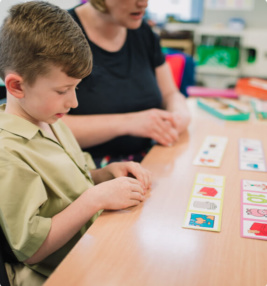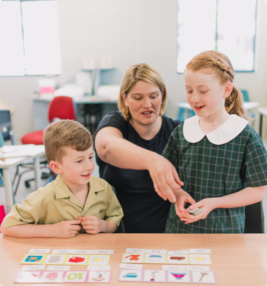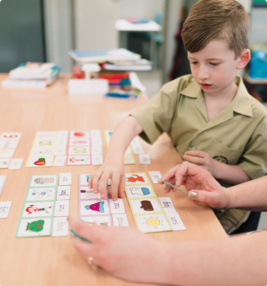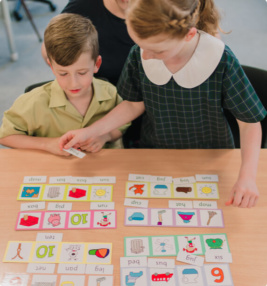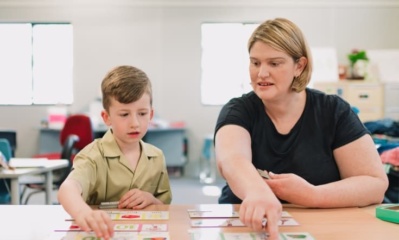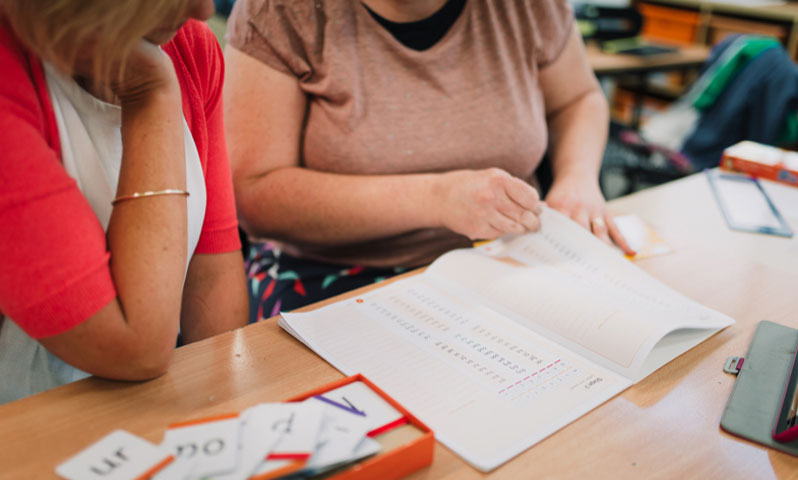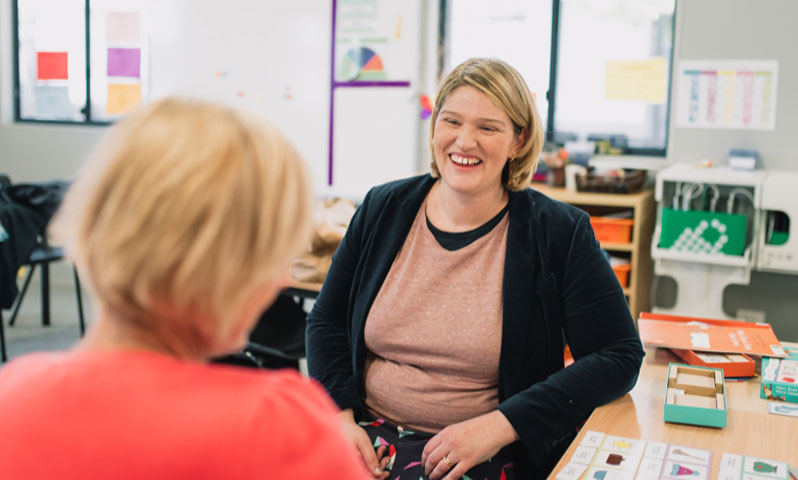Language, Learning & Literacy Training and Support for K-12 School Leaders, Teachers and Speech Pathologists.
We provide training to support the translation of current research into practice for the classroom & clinic.
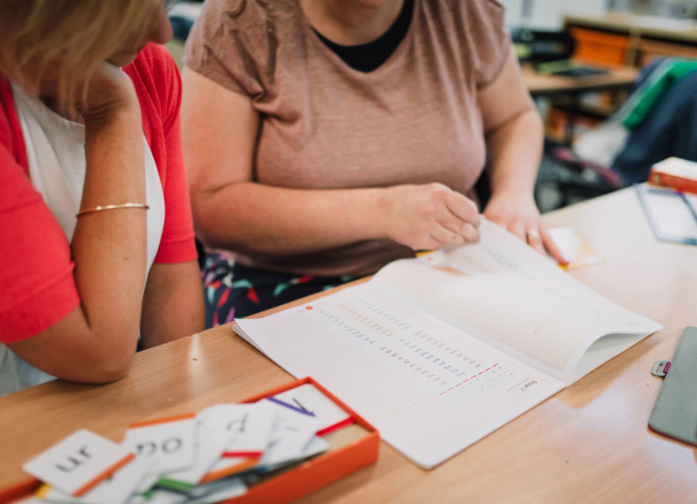


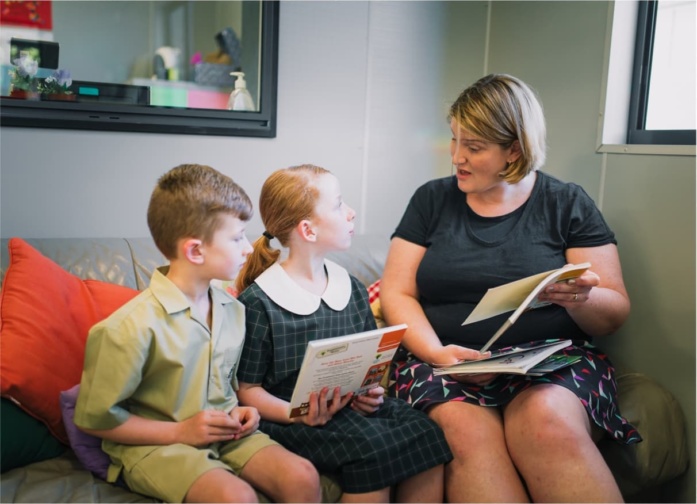
Kathryn Thorburn and
Language & Learning
Welcome to Language and Learning. Here you will find a wealth of information & language, learning and literacy training for teachers, school leaders & speech therapists working with students across K-12.
These training courses and coaching opportunities are designed to equip you to support your staff and students to be the best they can be provided by someone who has navigated many of your challenges in school leadership roles. Kathryn can share her lessons learned to help you work smarter, not harder.
Here you are always welcome to ask questions, to bring the rare and complex learning challenges and I’m always happy to partner with you to support the learning and success of all students on their learning journey through school and beyond.

Founder
Courses & Coaching

Teachers & Tutors
Teachers and tutors who work in mainstream inclusive classrooms, learning support, or specialist school roles, can find professional development courses and coaching options. Your work is both challenging and diverse and everyone needs some professional support and encouragement from time to time.

School Leaders
For school leaders; principals, literacy leaders, instructional coaches or assistant principals in Literacy, Numeracy and Learning support, here you will syllabus aligned speech and language training, support and advice tailored to your individual needs.

Speech Pathologists
Child Speech Pathologists can find training and coaching to assist you to provide the best support to school age students with language based learning difficulties.
Telehealth Support from a Child Speech Pathologist
As parents and caregivers, you can find Telehealth support from a Child Speech Pathologist needed for your student to navigate their K – 12 school journey and transition to life beyond school.


Why Language & Learning.
25+ Years ‘Real Life’ Experience
Certified Speech Pathologist
Whole Child Approach
Clinic & Classroom Tested
Practical Implementation & Application
Proactive & Individualised
Not Overwhelming
Nationwide Coverage
What our Courses & Coaching Customers Say.
Our Courses & Coaching Success Stories.
Commonly Asked Questions.
The terminology used to describe difficulties with learning varies according to the country in which the diagnosis is made.
Dyslexia* is viewed as a reading impairment (DSM 5/ICD 10), a learning ‘difficulty’ (UK) or a specific learning disability (USA). The latest edition of the Diagnostic Statistical Manual 5th edition (DSM 5) uses the terminology Specific Learning Disorder in Reading, Writing or Mathematics. These are the conditions that have also been referred to as Dyslexia, Dysgraphia and Dyscalculia.
According to AUSPELD It is conservatively estimated that well over 20% of Australian children are currently struggling with learning difficulties and 3% to 5% of students are known to have a developmental learning disorder. Of those students identified with a learning disorder, four out of every five are assessed as having a reading disorder (or SLD with impairment in reading), commonly known as dyslexia*.
A learning disorder can co-exist with difficulties related to attention, working memory, developmental language disorder or other disabilities such as hearing impairment, autism spectrum disorders, dyspraxia or a traumatic brain injury
A language disorder means difficulties with receptive language (understanding or comprehension of spoken language), expressive language (explaining or communicating and making yourself understood using spoken or oral language)or pragmatics (using language for social interactions). If there is no obvious cause of language disorder it will be called Developmental Language Disorder however if it is due to another condition or disability e.g. hearing loss, autism, brain injury it will just be referred to as a language disorder secondary to ….. (insert disability here).
Difficulties with language are known to co-exist with learning disorders. The presence of a language disorder can place a student at increased risk of difficulties with reading, spelling, writing, mathematics and learning across the curriculum. A language disorder is diagnosed by a Speech Pathologist who is also able to provide intervention for a Specific Learning Disorder.
A learning disorder will be specific to the learning of academic skills like reading, spelling, writing and mathematics. They are known as Specific Learning disorders in reading, writing or mathematics and may also be known as dyslexia, dysgraphia and dyscalculia. Specific Learning Disorders in Reading, Writing and mathematics are typically diagnosed by registered Psychologists (typically Clinical Psychologists and Educational Psychologists) according to the Diagnostic Statistical Manual 5th Edition (DSM 5).






